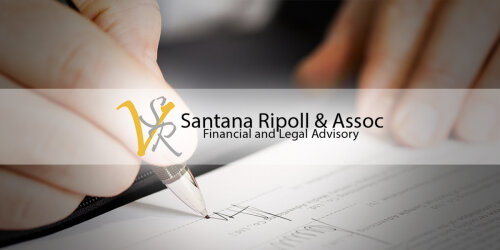Best Communications & Media Law Lawyers in Puerto Plata
Share your needs with us, get contacted by law firms.
Free. Takes 2 min.
List of the best lawyers in Puerto Plata, Dominican Republic
About Communications & Media Law in Puerto Plata, Dominican Republic
Communications & Media Law in Puerto Plata, Dominican Republic encompasses the regulation of telecommunications, broadcasting, print media, and digital communications. This area of law addresses issues such as content regulation, intellectual property rights, privacy, and the distribution of information. As a region known for its vibrant media landscape and increasing use of digital media, Puerto Plata is subject to both national laws and international agreements that govern how information is disseminated and protected.
Why You May Need a Lawyer
There are several situations where individuals and businesses might require legal assistance in the field of Communications & Media Law. These include:
- Dealing with defamation claims or managing reputation in the media.
- Navigating disputes over intellectual property rights related to media content.
- Ensuring compliance with advertising laws and broadcast regulations.
- Addressing privacy concerns in both online and offline media.
- Negotiating contracts related to media production and distribution.
- Handling licensing and regulatory compliance for telecommunications services.
- Protecting freedom of speech and press rights in complex legal scenarios.
Local Laws Overview
The framework of Communications & Media Law in Puerto Plata is influenced by Dominican national laws and regional regulations. Key aspects include:
- Intellectual Property Laws: Protect creators' rights over their media content, including copyright and trademarks.
- Telecommunications Regulation: Overseen by the Dominican Institute of Telecommunications (INDOTEL), it governs the operation and standards for telecommunications services.
- Defamation and Libel Laws: Provide remedies for individuals whose reputations are harmed through false information in the media.
- Privacy Laws: Regulate the handling and protection of personal data, especially in digital communications.
- Broadcasting Standards: Ensure equitable access to airwaves and regulate content to protect public interest.
Frequently Asked Questions
What is Communications & Media Law?
Communications & Media Law governs the ways information is created, shared, and protected across various media platforms, ensuring legal compliance and protecting public and personal interests.
How can I protect my intellectual property in Puerto Plata?
To protect your intellectual property, you can register copyrights, trademarks, and patents with the National Office of Intellectual Property (ONAPI) in the Dominican Republic.
Can I pursue a defamation lawsuit if my reputation is harmed by false media content?
Yes, you can file a defamation claim under Dominican law if you can prove the information published is false and has caused harm to your reputation.
What are the primary concerns of privacy laws in media?
Privacy laws focus on safeguarding personal data from unauthorized use and ensuring that media outlets handle information responsibly, especially online.
What role does INDOTEL play?
INDOTEL regulates the telecommunications industry in the Dominican Republic, ensuring service providers operate legally and according to defined standards.
Are there restrictions on media content in the Dominican Republic?
Yes, there are restrictions to safeguard moral values, national security, and public order. Content must comply with established broadcasting standards.
What should I do if I receive a cease-and-desist letter related to media content?
Contact a Communications & Media Law attorney to review the claim and advise you on the appropriate legal steps to take.
How do online media platforms fit into local laws?
Online platforms must comply with the same standards as traditional media in terms of content regulation and user privacy protection.
Can I negotiate a media contract on my own?
While you can negotiate, having a lawyer ensure all terms are clear and legally binding can prevent future disputes or misunderstandings.
What are the penalties for non-compliance with media laws?
Penalties can range from fines to restrictions on media operations, depending on the severity of non-compliance with communications and media regulations.
Additional Resources
For individuals seeking further information on Communications & Media Law in Puerto Plata, the following resources are recommended:
- The Dominican Institute of Telecommunications (INDOTEL) for regulatory guidelines.
- The National Office of Intellectual Property (ONAPI) for intellectual property registration and advice.
- The Dominican Bar Association for legal resources and lawyer directories.
- Libraries and online databases for research on current laws and past cases.
Next Steps
If you need legal assistance in Communications & Media Law, consider taking the following steps:
- Identify the specific nature of your legal issue to determine the type of legal expertise you require.
- Consult with a lawyer specializing in Communications & Media Law to discuss your case and receive tailored advice.
- Gather relevant documentation and evidence that supports your legal position or claim.
- Stay informed about any legal proceedings or changes in the law that may affect your situation.
- Consider attending seminars or workshops on media laws to better understand your legal rights and obligations.
Seeking legal advice from qualified professionals ensures your rights are protected and you are fully compliant with local and national laws.
Lawzana helps you find the best lawyers and law firms in Puerto Plata through a curated and pre-screened list of qualified legal professionals. Our platform offers rankings and detailed profiles of attorneys and law firms, allowing you to compare based on practice areas, including Communications & Media Law, experience, and client feedback.
Each profile includes a description of the firm's areas of practice, client reviews, team members and partners, year of establishment, spoken languages, office locations, contact information, social media presence, and any published articles or resources. Most firms on our platform speak English and are experienced in both local and international legal matters.
Get a quote from top-rated law firms in Puerto Plata, Dominican Republic — quickly, securely, and without unnecessary hassle.
Disclaimer:
The information provided on this page is for general informational purposes only and does not constitute legal advice. While we strive to ensure the accuracy and relevance of the content, legal information may change over time, and interpretations of the law can vary. You should always consult with a qualified legal professional for advice specific to your situation.
We disclaim all liability for actions taken or not taken based on the content of this page. If you believe any information is incorrect or outdated, please contact us, and we will review and update it where appropriate.










